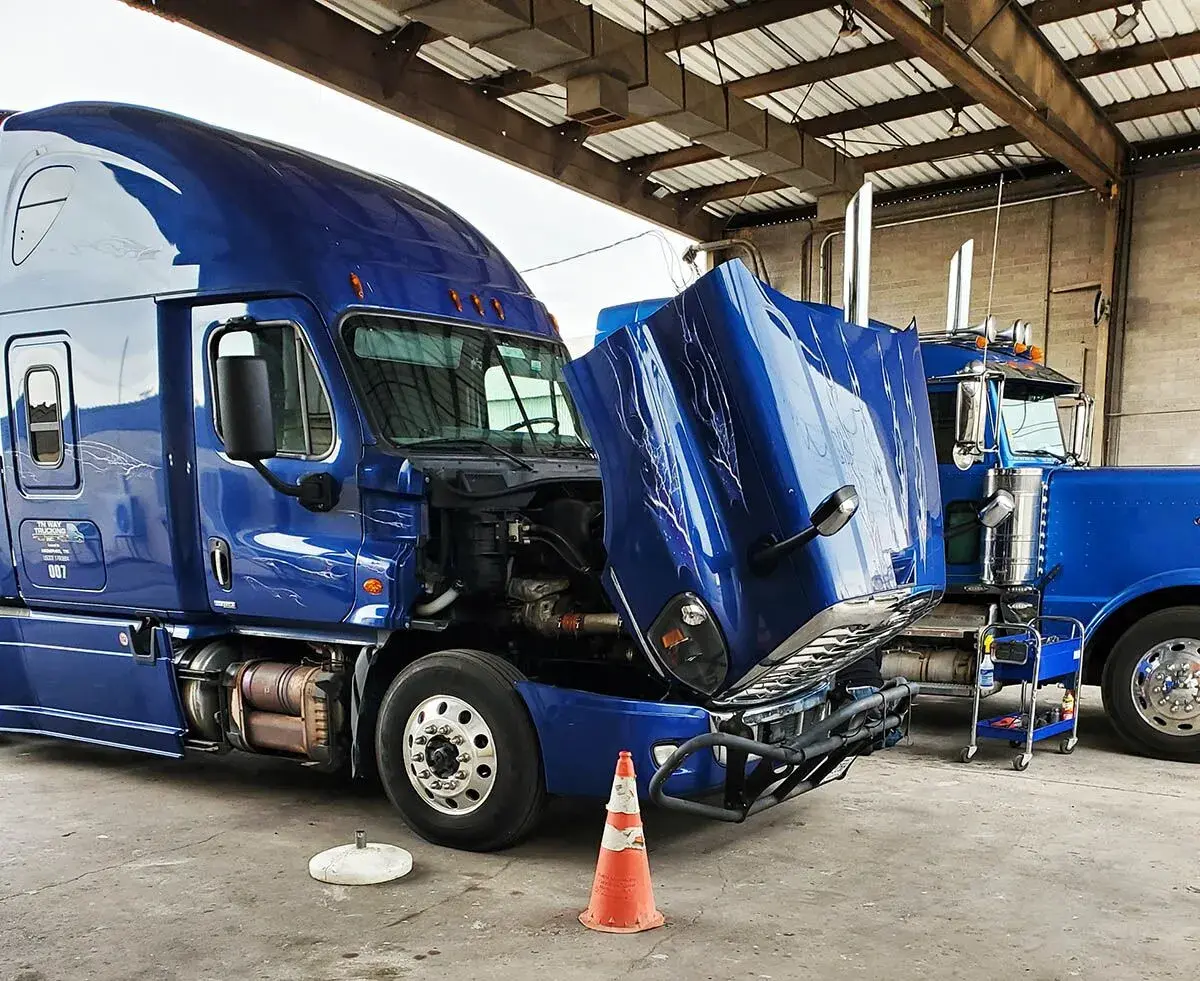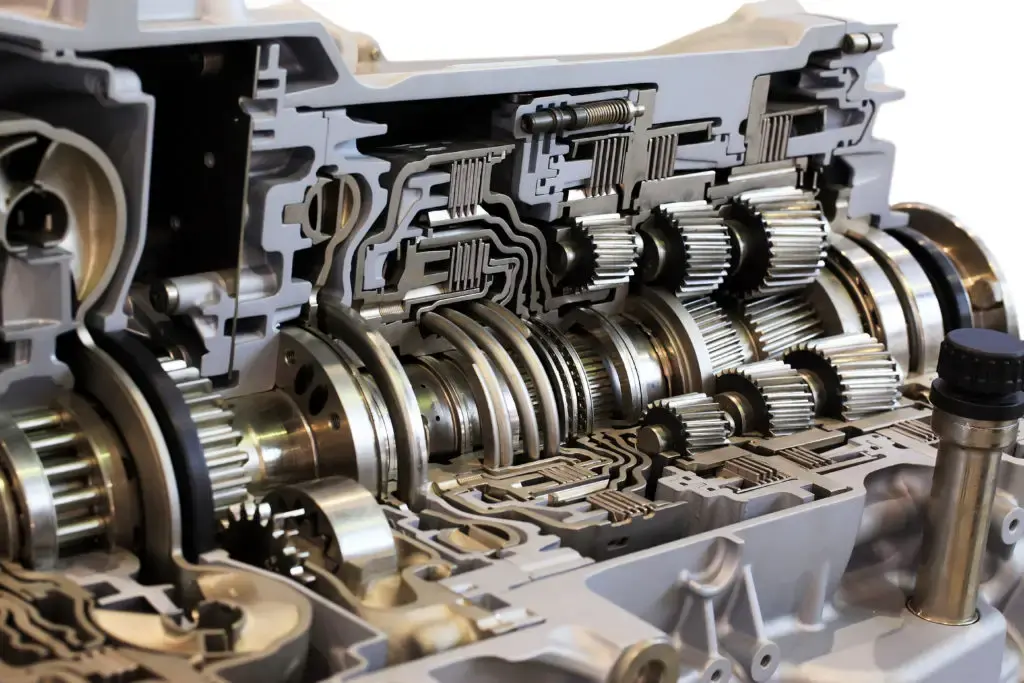Is your DPF clogged or causing issues? Contact us for expert DPF regeneration or forced regenerations to optimize engine efficiency and reduce emissions.
Understanding the diesel particulate filter (DPF) is key to a healthy engine. The DPF is a vital part of your exhaust system. It traps harmful soot to help meet emissions standards. Proper DPF care boosts your truck's performance and lifespan. Ignoring it can lead to costly repairs. Let's look at how to keep your DPF working at its best.
Understanding the Diesel Particulate Filter
The DPF's job is to capture soot from your engine. Think of it as a fine net in your exhaust. Over time, this net fills with soot and ash.
The DPF can burn off the soot (a process called regeneration), which turns it into ash. This leftover ash must be removed with regular cleaning.
The DPF is a standard part of modern diesel trucks. It helps the engine run smoothly and keeps the air clean. By cutting down on diesel emissions, it helps meet environmental rules. Knowing how the DPF works is the first step to proper care.
Why is DPF Maintenance Important?
Skipping DPF maintenance leads to problems. A clogged filter creates back pressure in the exhaust. This hurts engine performance and fuel economy.
You may notice:
- Less power
- Higher fuel use
- Dashboard warning lights
Bad clogs can cause the system to overheat or even shut down the engine. Regular DPF cleaning is key to preventing these issues.
Recognizing the Need for DPF Cleaning
Pay close attention to your dashboard. Warning lights for the DPF or emissions system are early indicators of a problem.
Other common signs include:
- Reduced engine power
- Using more fuel than usual
- Unusual smells from the exhaust
- The truck trying to regenerate more often
If you notice these symptoms, your DPF is likely clogged and needs to be serviced. Catching these signs early can prevent bigger, more expensive problems.
Methods for DPF Cleaning
There are a few ways to clean a DPF, but professional services are the most effective. They use special equipment to remove all the built-up soot and ash.
Common Professional Cleaning Methods:
- Air & Solutions: Using compressed air and special cleaning solutions to flush the filter.
- Baking: Placing the filter in a special oven at high temperatures.
- Ultrasonic Cleaning: Using sound waves in a liquid bath to break up deposits.
The Importance of Proper Cleaning
Regeneration (burning off soot) is not a full cleaning. It leaves ash behind, which builds up and causes blockages. A proper cleaning removes both the soot and the ash. This restores the filter to its full capacity.
Using the wrong cleaning method can damage the filter. That's why professional help is the best choice. Experienced technicians have the right tools to clean the filter safely and completely.
Preventing DPF Issues
The best way to manage your DPF is to prevent clogs in the first place. Good maintenance habits can help you go longer between professional cleanings.
Tips to Prevent DPF Problems:
- Use high-quality, low-ash engine oil (as your manufacturer recommends).
- Keep your engine well-maintained and fix any problems right away.
- Let the truck finish its regeneration cycles without interrupting them.
- Avoid too many short trips where the engine can't get hot enough.
- Take longer drives when you can to help the DPF self-clean.
- Use high-quality diesel fuel.
- Pay attention to DPF warning lights and get them checked immediately.
- Schedule periodic professional DPF cleaning as part of your regular maintenance.
The Role of Regular Maintenance
Think of DPF maintenance as a key part of your truck's health. Regular care, including professional cleanings, helps you avoid expensive repairs and stay compliant with emissions standards.
When your DPF is working correctly, your whole emissions system runs better. This leads to cleaner air and more peace of mind on the road.
A well-maintained filter is designed to last a long time. The key is removing both soot (which regeneration handles) and ash (which only a physical cleaning can remove). Keeping the DPF clean is vital for your truck's entire aftertreatment system.
Conclusion: Your DPF and Your Truck
Taking care of your DPF is essential. Regular cleanings protect your truck's health, boost performance, and keep you compliant with emissions laws. It's a key part of keeping your truck running smoothly and reliably.
Get Back On The Road Fast
Get back on the road faster with Rolon Mobile Truck Repair's convenient 24/7 mobile semi-truck repair services. Our expert team covers Sanford, Florida, and the neighboring communities.
FAQ’s
Can you clean a diesel particulate filter?
Yes. Professional cleaning removes built-up soot and ash. This restores the filter's function and helps you avoid buying a costly new one.
How do you clean a dpf filter?
Professionals use special methods like high-temperature baking, compressed air with cleaning solutions, or ultrasonic cleaning. These techniques safely remove all the soot and ash.
How often should I clean my dpf filter?
Check your owner's manual for recommended intervals. As a general rule, you need a cleaning if you see a DPF warning light, notice less power, or get worse fuel mileage.
What is dpf cleaning?
It is a deep-cleaning process that removes the soot and ash buildup from the filter. This is different from "regeneration," which only burns off soot. Cleaning is needed to restore the filter to 100% efficiency.
How to avoid dpf problems?
Use high-quality, low-ash oil and good fuel. Keep your engine well-maintained. Always let regeneration cycles finish, and don't ignore dashboard warning lights.





